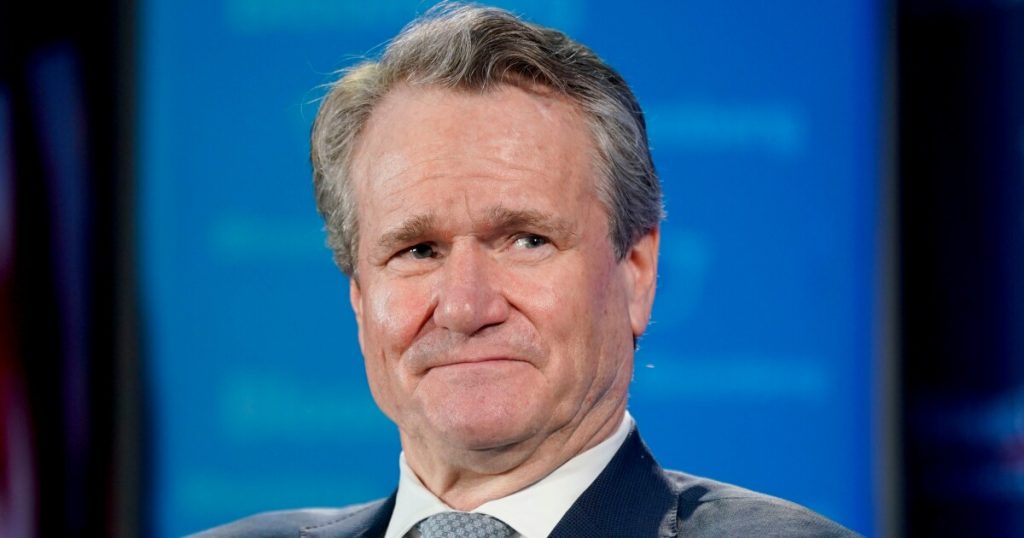President Donald Trump accused two of the nations’ largest banks of rejecting his business, following a report his administration was preparing an executive order threatening financial institutions who refused to do business on ideological grounds.
“The banks discriminated against me very badly,” Trump said in an interview Tuesday with CNBC.
Trump said he had been “informed by my people” that
“I ended up going to small banks all over the place,” Trump said.
The president added that he believed banking regulators during the Biden administration had been ordered to “do everything you can to destroy Trump, and that’s what they did.”
“Banks are not afraid of anything but a regulator — their regulators and their wives,” Trump said.
He didn’t offer exact dates for his dealings with
The defeat in New York’s civil fraud suit against Trump and his real estate company last year put restrictions on his ability to do business in the state. That included a
Trump was asked on Tuesday about a Wall Street Journal report that his administration was drafting an order that would direct bank regulators to investigate whether any financial institutions might have violated federal laws in closing certain accounts.
Both
‘Desperately Needed’
“We don’t close accounts for political reasons, and we agree with President Trump that regulatory change is desperately needed,” Trish Wexler, a
“The heart of the problem is regulatory overreach and supervisory discretion,” Austin Anton, a Bank Policy Institute spokesperson, said Tuesday. “The banking agencies have already taken steps to address issues like reputational risk, and we’re hopeful that any forthcoming executive order will reinforce this progress by directing regulators to confront the flawed regulatory framework that gave rise to these concerns in the first place.”
Federal banking regulators have said they’ll remove reputation risk from their bank exams, aiming to eliminate a factor that lenders have blamed for forcing them to exit some client relationships.
Conservatives have complained that major Wall Street firms have debanked gunmakers, fossil-fuel companies, religious groups and cryptocurrency firms. Trump aired that complaint to
“We serve more than 70 million clients and we welcome conservatives. We are required to follow extensive government rules and regulations that sometimes result in decisions to exit client relationships,” a representative for
In June, Citigroup ended a seven-year policy that placed restrictions on firearms sales by its retail sector clients, citing recent legislative developments and concerns over access to banking services.
The Trump Organization sued Capital One Financial Corp. in March, accusing it of closing hundreds of the real estate company’s accounts in 2021 for political reasons.
The president’s company claims the bank ended the decades-old relationship “simply because Capital One believed that the political views at the time favored doing so.”
In a setback for Trump’s company, a federal judge in July granted Capital One’s request to delay the exchange of evidence in the case until after the bank’s motion to dismiss is resolved. Capital One argues its agreements with the Trump Organization allowed it to close its accounts for any reason and that it gave the business plenty of advanced notice. The bank also says Trump’s company has failed to provide any evidence that the accounts were closed for political purposes.
Earlier this year
Kent Nishimura/Photographer: Kent Nishimura/Blo
The issue of debanking customers has come up outside of the US as well. In the UK, it prompted an outcry a few years ago, when right-wing politician Nigel Farage — who now leads the Reform UK party — revealed NatWest Group Plc’s upmarket Coutts unit had closed his account, saying his
The

